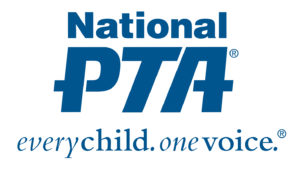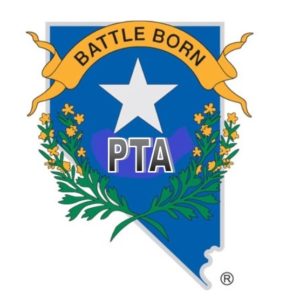The success of a PTA and its ability to serve children and achieve its goals – whether at the local, council, state or national level – depends on keeping financial matters in order.
PTA financial guidelines exist to prevent problems and protect the assets of the PTA – the funds, volunteers and good name of the PTA and school. They are not designed to be restrictive or cumbersome, but rather proactive, serving as a means to safeguard your unit, PTA volunteers and work for children.
The financial guidelines are designed to help your PTA maintain its 501(c)(3) status.
All expenditures must be aligned with the PTA mission and values.
REQUIREMENTS of PTA FINANCIAL MANAGEMENT
Always operate under a budget approved by the general membership annually. The budget is the “permission slip” for expenditures.
Do not spend money that has not been budgeted or go over the budgeted amount without approval from the General Membership
General membership must approve budget amendments.
Read the Bylaws, especially the Treasurer’s Duties.
Create Standing Rules with financial practices and safeguards.
Maintain receipts for all purchases.
Use check request and money received (or receipts) forms for
every transaction.
Use Cash Count Sheets and reports for electronic payments.
Submit the state and national portion of membership dues to Nevada PTA on a monthly basis in Memberhub.
Pay bills promptly upon submission of receipts and check request forms.
Always give a receipt when receiving cash.
Verify that all deadlines are met for the Standards of Continued Affiliation.
AIM INSURANCE REQUIREMENTS FOR FRAUD COVERAGE
Money should never be kept at a treasurer’s (or anyone’s) home.
Two people should always count the money, and both should sign the receipt verifying the amount.
Two signatures are required on all checks.
Have someone who does not have check signing authority review and initial the bank statement monthly before giving it to the treasurer. This person is looking for red flags including: checks showing up in non-sequential order, checks made out to cash, cash withdrawals, and checks written out of non- approved vendors, checks written for non-approved expenses, checks written out to individuals, expected deposits, or electronic transactions.
Never sign a blank check or a check made out to “cash.”
The treasurer should arrange to deposit the money in the bank as soon after the conclusion of the project as possible.
Money should be deposited into the bank account daily, even if a project is ongoing.
All bills should be paid by check, never cash.
Conduct an annual Financial Review or review of the
books.
Make sure that you have a copy of the bond policy
and be sure to follow the requirements to guarantee coverage.
FUNDRAISING
PTAs are private, not-for-profit organizations separate and apart from schools, school regions, or school systems. The PTA plays many roles in most communities. While the official mission of the PTA bears no mention of fund-raising, PTAs are increasingly engaged in fund-raising. Understanding how these activities should be viewed in relation to PTA’s nonprofit 501(c)(3) status with the IRS is critical.
While PTAs work hard every year developing activities and programs in classrooms and throughout their communities that help children and families, their role as fund-raisers can threaten to overshadow all other good works. While appropriate fund- raising is a legitimate activity for PTAs, it should never be a primary focus. Fundraising is a short-term solution for a few children. Advocacy leads to long-term solutions for many children.
The challenge for PTA members is to work with members, school administrators, and teachers to find ways to improve school funding. Those efforts will yield results far more profound and lasting than any piecemeal fund-raising effort.
PTA BUDGET
A budget is an outline of estimated income and expenses for a twelve-month period based upon the PTA’s goals or plans of work for that period. Refer to the sample budget in this guide for reference in preparing your PTA’s budget.
A budget committee is appointed and it prepares the budget. It is composed of the treasurer (who serves as chair), the president (past and present, if possible), committee chairs responsible for sources of funds or revenue, and other interested members (especially those with experience in financial matters).
The principal can serve in an advisory role but cannot determine what is and is not included in a PTA budget. PTA’s should collaborate with the principal to achieve goals that improve student outcomes that align with the school performance plan.
The treasurer (who serves as the budget committee chair) presents the budget to the board for consideration. Once the board approves the budget, it is presented and adopted annually at the first general membership meeting of the school year.
Any expenditure not provided for in the member approved budget must be submitted to the general membership for approval before money is spent. It generally is not necessary to have the budget approved before the end of school in May/June for the upcoming school year.
It is recommended that you have approved expenses to allow for back to school and start-up costs that are due before the annual budget meeting in September. A majority vote of the PTA members present is required for adoption.
See your PTA’s bylaws for information about the budget meeting.
Since the budget is only an estimate of the planned expenditures for the year, it may be necessary to amend it during the year.
Amendments require a vote of the members at any regular/general membership meeting or at a special general membership meeting called for that purpose. To amend something previously adopted requires prior notice and a majority vote, or a two-thirds vote without prior notice.
Fiscal Year is determined by your bylaws for IRS reporting purposes. Your PTA’s fiscal year is July 1 – June 30.
School Year runs from the first day of school through the last day of school.
Budget Year it the same as the fiscal year. Budgets should be approved at the first general membership meeting of the PTA when school begins in the fall.
Calendar Year is January through December
For a sample budget, log into the PTA Leaders Kit here
PTA FINANCIAL REVIEW
A Financial Review is a financial review of the PTA’s books. It serves to certify the accuracy of the PTA’s financial and board records. An Financial Review assures the membership that the association’s resources/funds are being managed in a businesslike manner within established procedures. It must be conducted annually at the end of the officers’ term of office, and whenever the treasurer leaves office. See your PTA’s bylaws for more information.
The Board of Managers selects an Financial Review committee of at least three people that are not signers on the bank account and are not related to any signers. The treasurer submits a final report and all financial documents to the committee.
The Financial Review report and a copy of the final treasurer’s report for the year must be submitted to Nevada PTA no later than September 30th. The Financial Review must be completed as soon as possible after the treasurer leaves office. The incoming president should coordinate with the outgoing treasurer and president to ensure this happens as soon as school ends.
Your unit does not have to hire a CPA and generally speaking should not have to pay for an Financial Review. A committee of no fewer than three people can perform the Financial Review. (Check your bylaws.) They can be PTA members or someone in the community familiar with bookkeeping.
The key is to have an independent review of the books conducted by someone who is familiar with proper PTA financial management.
The Financial Review committee members cannot be one of the signers on the bank accounts, or related to one of the signers. Contact your council, region or the Nevada PTA office for further guidance.
The treasurer presents the Financial Review report at the next board and general membership meetings, after which it becomes part of the minutes, the official records of the association. Upload the financial review and meeting minutes in Memberhub.
*Remember: Financial reviews are to be done annually at close of books, June 30th. If you have a transition of treasurer mid-term, a new financial review should be completed and uploaded to Memberhub.
FRAUD
It is the entire Board’s responsibility to make sure that deadlines are being met and financial controls are being used to prevent theft.
Signs of Fraud Can Include:
Treasurers report missing or nonexistent
Bank statements missing
Accounts not reconciled
Delayed deposits
Missing supporting documents
Not using the treasurer software.
Checks bouncing
Lifestyle changes of volunteers
Board members saying that a PTA does not have to comply
with deadlines, “they took care of it”
Board members wanting to extend their term
If someone on your board suspects fraud, contact Nevada PTA immediately to get assistance with the investigation process.
FREQUENTLY ASKED QUESTIONS
How many fund-raisers are allowed annually?
PTAs should use the 3:1 rule: for every fund-raising activity, there should be at least three non-fund-raising projects aimed at helping parents or children, or advocating for school improvements and the PTA’s programs. Refer to the Fundraising Quick Reference Guide at https://www.pta.org/local-leader-kit for more information.
Can the principal or any third party tell the PTA which fundraisers to conduct or which fundraising companies to select?
No. Only the PTA decides which fundraisers or fundraising firms will be used. Only Presidents can sign contracts, and presidents can only sign contracts for fundraisers that will happen during the current fiscal year. The current board cannot obligate future boards for any fundraisers or other contractual obligations.
Can our PTA raise funds for a member in need?
While it is acceptable for PTAs to volunteer for these causes, the funds cannot go into the PTA account. Please see https://www.pta.org/local-leader-kit/finance/budgeting-special-funds#sunshinefunds for more info.
How much money do we need to run our PTA?
Start by identifying what programs and projects in your plans of work need to be funded to fulfill the PTA mission. Don’t raise money first and then decide how to spend it. A PTA should raise the amount of money needed to meet its proposed budget. PTA is an educational advocacy association, not a fund-raising association. Carefully choose the fund-raising activities that best meet your PTA’s needs.
Is it ever okay for PTAs to pay salaries of school personnel?
Absolutely not! We are not an employer and this may conflict with school district collective bargaining agreements and obligate PTAs to liabilities. This is a school system responsibility under all circumstances.
What do we do with unspent funds when school ends? Should we turn them over to the principal?
No. All funds can only be spent as approved in the budget. If they are not spent at the end of the school year, then they should be carried over to the following year’s budget. The officers cannot arbitrarily decide how to spend or use up funds at the end of the school year. Never turn PTA funds over to the school, this is against the IRS rules because the school is not a 501(c)(3) . Donations of this type must be done with a grant or gifting form, please contact Nevada PTA for more guidance.
Is there a limit on the amount of funds that can be carried over from year to year?
No. There is no limitation on amounts carried over from year to year; however, it is recommended that you limit fund-raising to levels required for budgeted expenses to avoid substantial carry- over amounts.
Can the principal tell the PTA how to spend the PTA’s funds or what fund-raisers to do?
No. Only the PTA’s members decide how PTA funds will be raised and spent.
With the reduction in the state’s funding for education and local school system budget challenges, shouldn’t PTA offer to fill the gaps…by buying books, desks, equipment, and even paying salaries?
Absolutely not! Now, more than ever PTAs need to advocate to secure adequate funding for education and for all children. PTA doesn’t exist to buy the basics or to contribute to inequities between schools.
Is attending training and convention a “legitimate” PTA expense?
YES! Attending training is an appropriate and expected PTA budget expense. Verify that your budget allocates sufficient funds for officers and members to attend these important events.
When should we change the signers on the PTA bank accounts?
Go to the bank with an outgoing signer as soon as your bylaws specify that the new Board takes over. Or whenever one of your account signers is no longer serving as one of your officers. Take a signed copy of the minutes from the election meeting and new officers’ roster to the bank.
Do PTAs have to file any forms with the IRS?
File a 990N postcard annually. We recommend you file as soon as you complete your financial review. If your PTA consistently has over $50,000 in income, please contact Nevada PTA for further instructions. Upload the IRS tax confirmation into Memberhub.
Where can I get more information about PTA financial management and proper procedures?
Refer to the Finance section of the National PTA Local Leader Kit by going to https://www.pta.org/local-leader-kit/finance. When you have a question, never hesitate to contact your council treasurer, region director, state office, or the state PTA treasurer. Proper management of your PTA’s financial assets and good name is among your PTA’s highest priorities and is critical to the success of your PTA’s work for children.
Does our PTA need insurance?
Yes! Nevada PTA believes that it is essential to protect itself and its local PTAs, their funds, their boards, and their boards’ personal assets, by providing full insurance coverage for all aspects of doing business as a PTA. Your school district may have additional insurance requirements for PTA events held on campus.
Nevada PTA provides a mandatory comprehensive insurance policy for our PTAs statewide:
General Liability insurance provides protection for covered losses resulting from an actual or alleged bodily injury, property damage, and personal injury or advertising injury.
Directors & Officers (D & O) provides protection for covered losses resulting from an actual or alleged error or omission, misleading statement or breach of duty.
D & O insurance is the best way to protect the personal assets of PTA board members if such actions as covered by D & O insurance occur.
Bonding insurance provides protection for the loss of money, securities and other property resulting directly from one or more fraudulent or dishonest acts committed by an employee (An employee is any elected officer, any committee chairperson whether elected or appointed or any member of the organization acting as a volunteer).
Call AIM Association Insurance Management, Inc.,(800) 876-4044 if you have specific questions about the policy, exclusions or coverage. You may access the information online at https://aim-companies.com. The company’s address is
P.O. Box 742946 Dallas, TX 75374-2946.
The policy year is November 1 to November 1. AIM will bill your PTA for insurance and you will pay them directly. A Certificate of Insurance will be sent back to your PTA. You may be required to provide a copy of the certificate to your school’s office.
Invoices are mailed after August 1st to the school address.
Any questions or concerns, please email leadership@nevadapta.org



